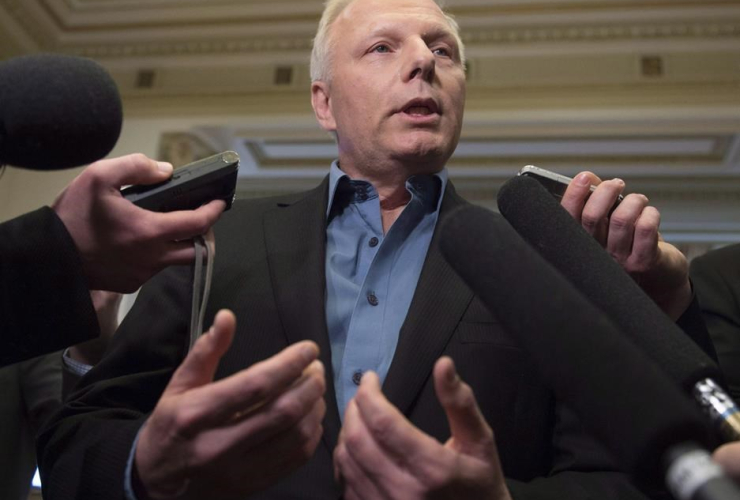There will be no Quebec sovereignty referendum for at least another six years if the new Parti Québécois leader becomes premier in 2018 and stays true to his promise.
Jean-François Lisée, 58, was elected PQ leader Friday, winning 50.6 per cent of support on the second round of voting.
Lisée, a one-time adviser to former premiers Jacques Parizeau and Lucien Bouchard, said during the leadership campaign he would not hold a referendum in his first mandate as premier. The next election will be held in the fall of 2018, with the following one set for 2022.
Lisée became leader after beating out fellow members of the legislature Alexandre Cloutier and Martine Ouellet and the unelected Paul St-Pierre Plamondon.
His strategy of not wanting a referendum in a first PQ mandate paid off at a time when polls consistently suggest Quebecers are not keen on another plebiscite on the province's political future.
But Lisée, as with all PQ leaders, had no choice but to tell party members sovereignty is still front and centre in his mind.
"The PQ is here to stay." he said in his victory speech. "The independence project is irreducible.
"We, supporters of independence, our dream is more alive than ever. We know we don't have to ask anyone permission except ourselves. We know Quebec will be present on the world stage. We know the future belongs to us. We know that tonight, the road to victory lies ahead of us."
Lisée, a member of the legislature since 2012 and international relations minister between 2012 and 2014 , has a law degree and a master's in communications from Université du Quebec à Montréal.
His campaign focused on immigration and identity issues and raised the ire of opponents and younger voters who saw him playing on fears and divisions in society.
He argued immigration has not been a great benefit to Quebec and that the province needs to reduce the number of immigrants it accepts every year in order to better integrate them.
Cloutier, 39, began the campaign as the heavy favourite but was attacked as the candidate of the party establishment.
He finished with 31.7 per cent of the vote on the second ballot, while Martine Ouellet ended up with 17.7 per cent. Plamondon dropped out after the first round when he finished fourth.




Comments